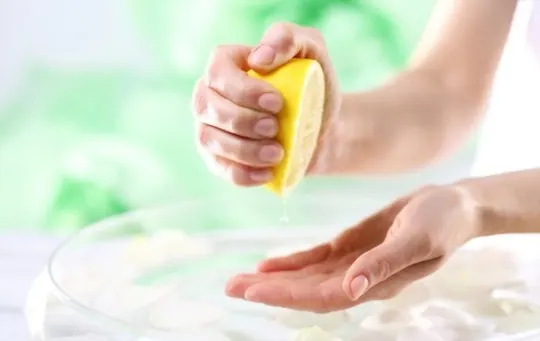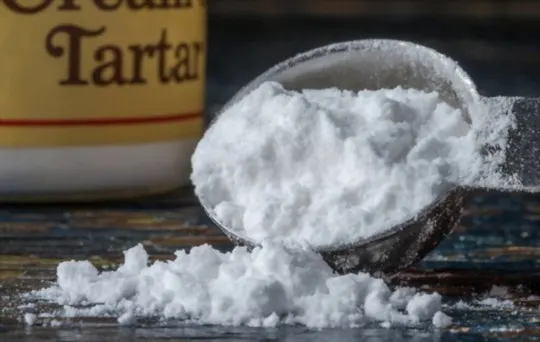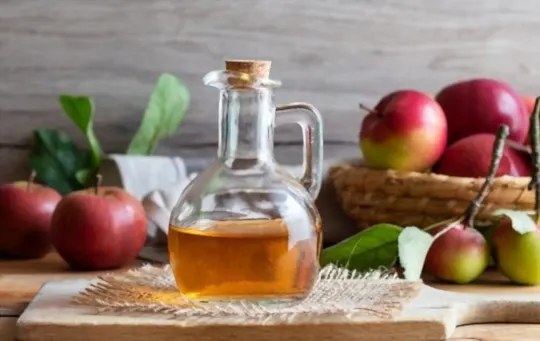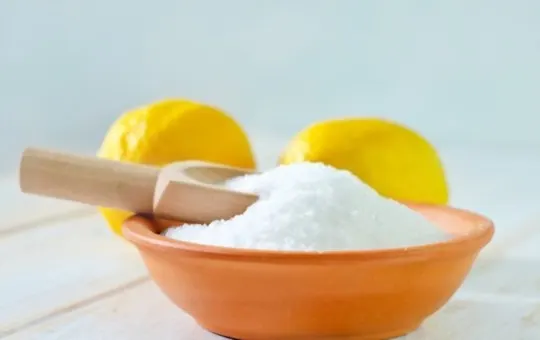Have you ever wondered what makes lemons and limes so tart and sour? Citric acid is the answer.
This ubiquitous acid has a wide variety of uses, but many wonder what can be used as a substitute for citric acid when needed?
Commonly used as a food preservative, main component of soft drinks or cleaning agent, citric acid provides the pleasant tartness to many dishes.
However, in case it is not available or health reasons prevent its use, there are several alternatives that may be duable.
From simple kitchen ingredients to products from well known suppliers, we will discuss five great substitutes for citric acid that are fit for all kinds of recipes.
What is Citric Acid?

Citric acid is a naturally occurring acid found in citrus fruits like lemons, limes, oranges, and grapefruits.
It is used in a variety of foods and beverages for its tart and sour taste as well as for its preservative properties, which help to extend shelf life.
Citric acid has been used since ancient times in the form of lemon juice and was first isolated from lemon juice in 1784 by chemist Carl Scheele.
Citric acid starts off as a light yellow crystalline powder that has no odor but does have a tart flavor.
As it gets heated, it develops a stronger sour flavor and aroma.
Its most common uses are:
- As a preservative for canned items such as fruit and vegetables due to its ability to prevent bacterial growth.
- As an additive in food manufacturing processes to add tart or sour taste.
- As an ingredient to provide zest in drinks, baked goods, condiments, candies and ice cream.
- To enhance the flavor of sauces such as tomato sauces or mustard mixtures.
- To adjust pH (acidity) levels during food processing.
- In pharmaceuticals such as bath salts and antacids due to its mild anti-bacterial properties.
It can be added directly to food items or purchased pre-packaged either in liquid or powdered form.
Citric acid is also available in tablet form although this tends to be more popular with home chefs looking for culinary uses rather than bulk production operations.
The 5 Best Substitutes for Citric Acid
It’s usually used as an ingredient in food and drink recipes as preservative—keeping them fresh and tart.
Without it, certain recipes may come out wrong or taste differently than expected.
Luckily, there are other substitutes available if you don’t have access to citric acid.
Here are some of the best substitutes for citric acid:
1 – Lemon Juice

Many cooks use lemon juice as a substitute for citric acid.
It is found in many households and is easily accessible.
This natural alternative has a strong citrus flavor and provides the sour taste that citric acid brings to the dish.
Just one tablespoon of lemon juice can be used in place of one teaspoon of citric acid.
However, keep in mind that this substitution will change the overall flavor of the dish when compared to using citric acid.
Additionally, due to its higher liquid content, it may alter the texture of a recipe if not taken into account when measuring other ingredients.
While some recipes allow for this substitution with great results, you may want to experiment before fully relying on it as your go-to ingredient for dishes requiring citric acid.
2 – Lime Juice

Lime juice is one of the most common substitutes for citric acid.
Depending on the recipe, you can use either the juice or zest of a lime.
The taste it provides is very similar to that of citric acid, making it a great alternative when you want to replicate a slightly acidic flavor without resorting to chemicals.
However, this replacement should be consumed in moderation as limes are naturally high in sugar and can overwhelm a recipe if too much is used.
If you’re willing to experiment, try reducing the amount of sugar in the recipe and adding some fresh lime juice instead.
This can produce great results when baking items like shortbreads and other desserts.
3 – Tartaric Acid

Tartaric acid, also known as dihydroxybutanedioic acid, is a white crystalline organic acid that is naturally found in some fruits like grapes and tamarinds.
It has a slightly sour taste and the chemical formula C₄H₆O₆.
Tartaric acid can be used as a substitute for citric acid in many recipes because it has similar properties and adds a sharp flavor.
When substituting tartaric acid for citric acid, you should use half as much tartaric acid as you would normally use citric (e.g., ½ teaspoon of tartaric for 1 teaspoon of citric).
You should also keep in mind that tartaric’s sourness will be slightly milder than that of citric.
4 – White Vinegar

White vinegar is a common household ingredient made from a fermentation process of ethanol or other sources of alcohol.
It contains somewhere between 4 and 7 percent acetic acid, which when mixed with water produces a sour, acidic taste similar to citric acid.
As with other acidic ingredients, it’s important to be mindful of the pH balance when using white vinegar in place of citric acid.
Typically, recipes that call for citric acid as an ingredient are looking to lower the overall pH balance, so you’ll want to use caution when adding too much vinegar.
It also has a distinct smell and flavor may not match certain recipes that call for citric acid specifically.
5 – Apple Cider Vinegar

Apple Cider Vinegar is a great substitute for citric acid due to its high acidity and tart flavor.
To use apple cider vinegar as a substitute, add one tablespoon of apple cider vinegar to the recipe that calls for 1 teaspoon of citric acid.
It may not have the same flavor as your original recipe, but it will still be flavorful and have a similar texture.
Keep in mind that apple cider vinegar has considerable additional health benefits, so you may want to consider using this substitute more often.
Conclusion
When used correctly, citric acid can add a subtle and desirable taste to food and beverages.
While citric acid is generally considered to be a safe additive, some people have sensitivities to it or allergies.
Fortunately, there are several options that can substitute for citric acid.
Tart fruit juices, lemon and lime juice, tomato-based sauces, vinegar, and lactic acid powders are all great substitutes that provide similar taste without the potential side effects of citric acid.
Before using any substitute it is best to check the labels for ingredients that might conflict with those already in your recipe.
While citric acid is the most commonly used additive for adding an acidic flavor, these other alternatives provide similar flavors and properties in food or beverage recipes.
Whether you’re looking for a citric acid alternative due to allergies or simply want to progress your experimenting with new ingredients in your favorite recipes; tart fruit juices, lemon/lime juice extracts, vinegar extracts or lactic acid powders offer equally as delicious results.

The 5 Best Substitutes for Citric Acid
Ingredients
- 1 – Lemon Juice
- 2 – Lime Juice
- 3 – Tartaric Acid
- 4 – White Vinegar
- 5 – Apple Cider Vinegar
Instructions
- Choose your preferred substitute from the list of options.
- Organize all of your ingredients.
- Use the proper substitute to cook your recipes.
